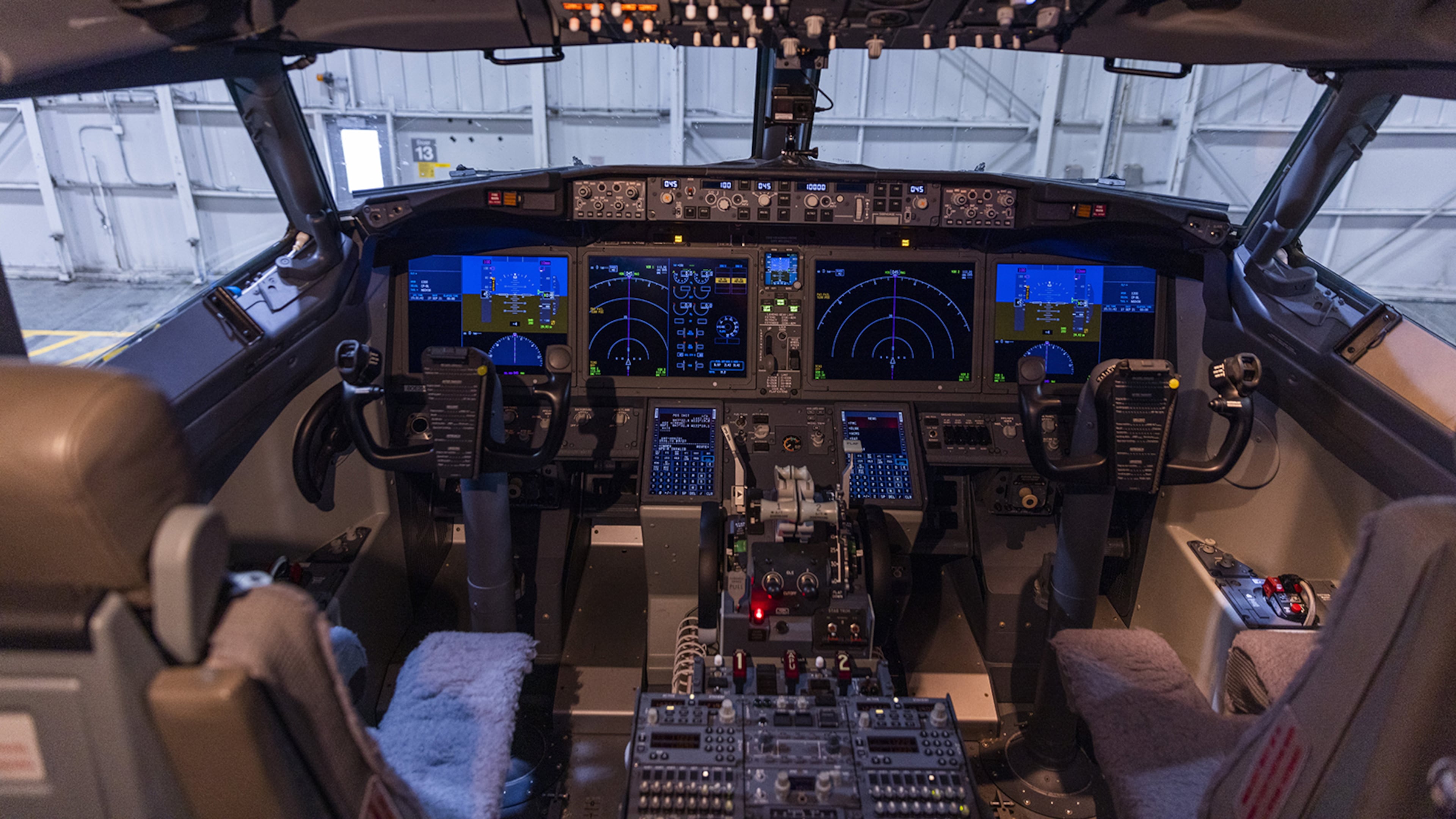It’s not common, but some pilots have been arrested for being drunk

The arrest of a Delta Air Lines pilot at Edinburgh Airport shortly before he was about to fly to New York in June raised eyebrows among the flying public.
Lawrence Russell, Jr., of Georgia, was arrested on charges under the U.K.’s Railways and Transport Safety Act of 2003, which declares a pilot unfit for duty when impaired by alcohol or drugs. The law sets a maximum allowable blood-alcohol limit at 0.02%, among other regulations. That’s lower than the 0.08% level that makes it illegal to drive in the U.S.
According to U.K. law, those found guilty can face penalties including a fine and up to two years in prison.
Russell has been granted bail in Scotland. Court authorities in Scotland had no record of an attorney representing Russell. Atlanta-based Delta said the pilot “has been removed from service pending the outcome of the investigation.”
Russell, who was born in 1961, is far from the first pilot to be arrested for being under the influence before a flight.
In an incident in 2019, a Delta pilot was arrested at Minneapolis-St. Paul International Airport on suspicion of being intoxicated.
Gabriel Lyle Schroeder, 37, was queued up for security screening for crew members and left the line when he saw additional screening, according to an airport police report.
Schroeder was removed from the plane and was arrested and suspected of being impaired, according to the police report. In 2020, he pleaded guilty to operating or attempting to operate an aircraft under the influence of alcohol and was sentenced to a month of home detention.
Federal Aviation Administration data show there are at least a handful of alcohol violations every year among commercial pilots who fly for airlines or charter operations, who are also subject to random alcohol tests. The number of alcohol violations among pilots over the last 20 years has ranged from 5 in 2013 to 25 in 2019. There were 7 pilot alcohol violations in 2022, according to the FAA.
Other incidents have happened in other countries. In 2018, a Japan Airlines pilot was arrested in London after he failed a breath test before he was supposed to co-pilot a flight to Tokyo that evening.
Police were alerted by the driver of a crew bus, who smelled alcohol on Katsutoshi Jitsukawa’s breath, according to the Japanese broadcasting company NHK-World-Japan. He later tested nearly 10 times the legal limit for alcohol in the U.K. Jitsukawa pleaded guilty to a charge of exceeding the alcohol limit.
In 2016, a SkyWest pilot was arrested in Rapid City, South Dakota on suspicion of operating an aircraft while intoxicated. That pilot was arrested for failing a breathalyzer test but was cleared by a blood test, and later filed a federal defamation lawsuit against police officers who arrested him, according to a USA Today article.
Also in 2016, an Alaska Airlines captain was selected for random drug and alcohol testing by the airline, which yielded results that the pilot had a blood alcohol concentration of .134 percent and .142 percent. The U.S. Department of Justice announced that the pilot was arrested on suspicion of flying while under the influence of alcohol. The pilot, David Hans Arntson, was removed from duty and retired from the airline.
In 2010, a Delta pilot was pulled from the cockpit of a Delta jet in Amsterdam, with police saying he blew a .023 percent blood-alcohol level in a breath test, above the legal limit in the Netherlands.
The FAA says a pilot will be removed from a plane if their breath alcohol concentration level is 0.04 or greater. Pilots also must not drink within 8 hours before flying, the so-called “bottle to throttle” time period. Some airlines have stricter requirements.
A 2021 National Survey on Drug Use and Health found that an estimated 11.3% of adults age 18 and older had alcohol-use disorder in the past year, according to the National Institute of Health’s National Institute on Alcohol Abuse and Alcoholism.
Lyle Prouse, a pilot in Conyers, in 1990 became the first commercial pilot sent to prison for flying while intoxicated. He was a Northwest Airlines pilot when he was charged under a 1986 federal law aimed at cracking down on drug abuse in the transportation industry.
Prouse was fired, lost his FAA licenses, imprisoned — and went sober, eventually regained his FAA licenses, was rehired by Northwest and pardoned by President Bill Clinton. Then he wrote a book about it called “Final Approach - Northwest Airlines Flight 650, Tragedy and Triumph,” published in 2011.
It’s an example of how alcoholism can be a career ender for pilots, but isn’t always.
The FAA has a process to issue special medical certificates for pilots who have a history of alcoholism and meet certain requirements to demonstrate successful treatment.

